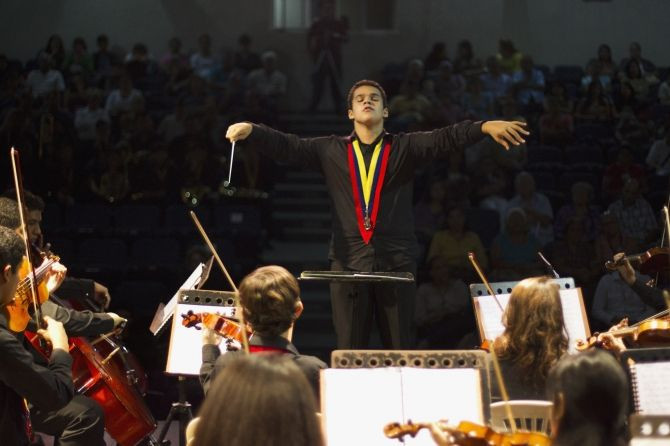Study Suggests Link Between Child Prodigies and Autism

Child prodigies capture our attention with their ability to perform at levels that most adults cannot at very young ages. According to Malcolm Gladwell’s best-selling 2008 book, Outliers, the average person needs 10,000 hours of practice in order to master a subject, and yet, by virtue of their young age, these prodigies do not have that much time in order to justify their mastery in a chosen domain.
Some scientists believe that prodigies are simply born with innate talent and intelligence. Others posit that prodigies are simply “[products] of intense training.” A recent study published in the journal Intelligence adds another idea into the mix – an autism link.
The study, conducted by Ohio State University’s Joanne Ruthsatz and Yale University’s Jourdan B. Urbach, contacted nine prodigies who had climbed to great heights in the rule-based disciplines of math, art, gastronomy, and music, who were all famous, but for the purposes of the article, were kept unidentified. Eight out of the nine agreed to be tested. Two of the prodigies are now adults but the rest were still children. They were given the Stanford-Binet test, which tests “fluid reasoning, knowledge, quantitative reasoning, visual spatial abilities, and working memory.” They were also given the Autism-Spectrum Test, which is fifty questions and asks questions like, “I tend to notice details others do not,” and “I find social situations easy.”
Researchers found in prodigies an elevated IQ but not one to the level that would be indicative of their amazing abilities. Indeed, among the prodigies tested, the average IQ was 128. What the prodigies did have was an extraordinary working memory, which is the ability to hold onto short-term memories while receiving new information. All of the prodigies were in the top 99 percent for working memory.
In regards to autism, while autism is found in one out of 88 people in the United States, four out of eight of the prodigies have family members affected with autism. Three of the eight have autism themselves. Prodigy eight’s family reports:
The prodigy said his first words at three months of age and knew the entire alphabet by eight months of age. He produced short sentences at nine months. He began reading before one year of age and memorized the atlas between eleven and fourteen months of age. At eighteen months of age, he stopped talking and avoided eye contact. He was diagnosed with autism at the age of three. He began to speak again at two years and eight months.
While the majority of the prodigies were not diagnosed as autistic, all scored very highly on one particular facet that tends to be found in autistic children – attention to detail. Some also reported discomfort with social situations.
So while there may be a link between child prodigies and autism, the question remains: what is the cause of child prodigies, and why, perhaps, do more of them not have autism? Some researchers suggest uterine environment may be at play. In the case of prodigy eight,
His mother reports a very difficult pregnancy. She started labor nine times between the 29th and 37th weeks of her pregnancy and required medication to stop the labor. During the 35th week of her pregnancy, her water broke and she had a 105‐degree fever from an infection in her uterus. The child prodigy did not have a soft spot at delivery.
At least one other prodigy was born extremely prematurely. Some also suggest that the reason that more of these prodigies do not develop more of the traits characteristic of the autism spectrum is that, while their brains do have some of the highly wound links that children with autism have, a biological modifier allows them to evade some of the more pernicious traits and leave the attention to detail intact.
There is no reason to feel bad if you are not one of these prodigies, and the study does have severe limitations in its small sample size. There is evidence that working memory can be developed and even tentative evidence that shows that people can develop synesthesia.
Published by Medicaldaily.com



























